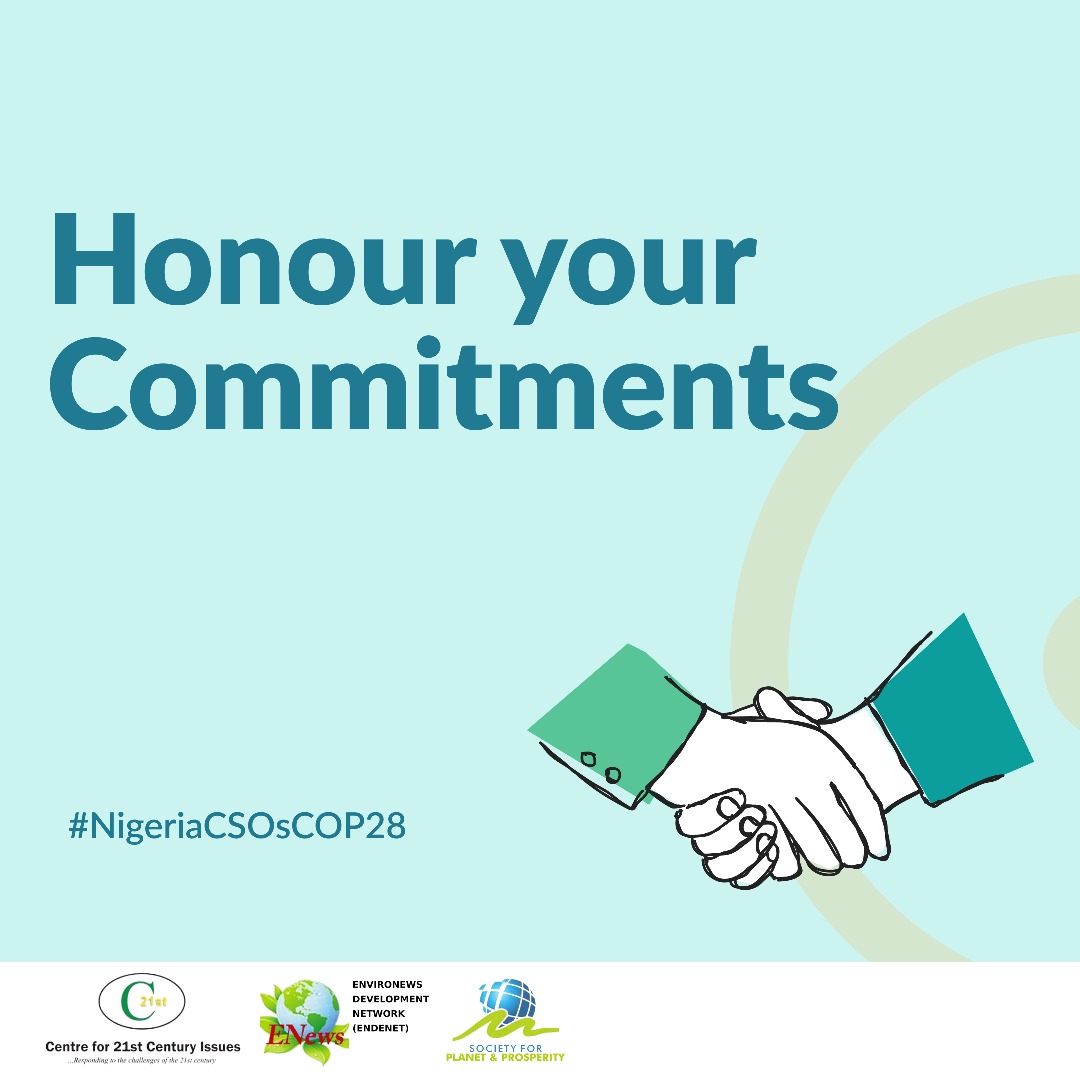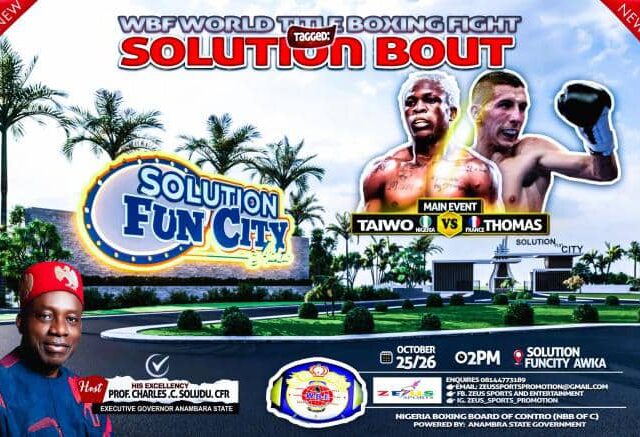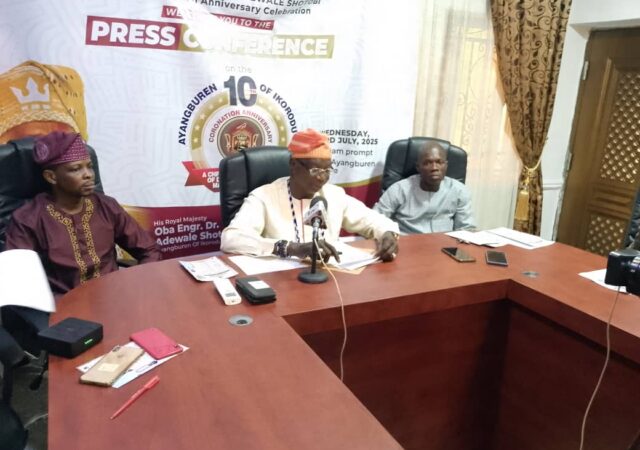A delegation of Nigerian civil society groups is currently in Dubai, United Arab Emirates (UAE), as they look forward to actively participate in this year’s 28th Session of the Conference of the Parties (COP28) to the United Nations Framework Convention on Climate Change (UNFCCC), which will take place from Thursday, November 30, to Tuesday, December 12, 2023.
The body, led by three non-profit organisations—the Centre for 21st Century Issues (C21st), EnviroNews Development Network (Endenet), and the Society for Planet and Prosperity (SPP), will harmonise the activities of CSOs, governments, and other important stakeholders at this global conference to ensure Nigeria receives the best outcomes that will protect its people from the disruptive effects of climate change.
Supported by the British High Commission (BHC) in Nigeria under a project named “Strengthening Nigeria’s Civil Society Organisations’ Engagement with Global Climate Change Policy,” this group will additionally advocate, lobby, and enhnace communications in order to promote Nigeria’s effective participation in the various COP28 negotiations.
The coalition of environmental rights activists has proposed many strategies for achieving this goal following the COP28 thematic programme and plan of action.
One of these strategies is to measure Nigeria’s success during the international meeting by having daily in-person involvement as well as online monitoring and reporting of all the conversations.
Others are online advocacy campaigns to engage the public in the several negotiating streams and global days of action to assess the momentum and achievements of the overall goal of COP28.
These discussions, which will centre on specific solutions that need to be scaled up this decade to limit warming to 1.5 degrees, build resilience, and mobilise finance at scale, they hinted further, will help bring together a diverse range of stakeholders around the loss and damage fund, global stocktake, global goals on adaptation and finance, energy transition and renewables, phase down and phase out, as well as agriculture and food systems.
The idea is to create an understanding of where the world stands on climate action and support, identify the gaps, and work together to agree on solutions and pathways to 2030 and beyond.
A group of carefully chosen Nigerian journalists and communication experts has been assembled and constituted. They will boost CSO participation with policymakers, gender mainstreaming in the UN climate negotiation, and help spread awareness of the full range of discussions.
Earlier in the project’s first execution phase, the three implementation partners carried out a scoping study on the role and participation of Nigeria’s CSOs in climate change negotiations over the previous two years in order to identify the problems and bridge the gaps to strengthen CSOs’ engagement in global climate change policy at COP28.
The scoping research findings were used to develop a capacity-building programme and to promote pre-COP28 multi-stakeholder conversations with relevant government agencies and climate change institutions.
Beginning on Friday, November 10, and ending on Friday, November 24, the virtual, physical training and knowledge-sharing exercise gave the beneficiaries the tools they required to understand how to navigate the UNFCCC’s multiple negotiation streams, investigate the various negotiation interests, and clearly define Nigeria’s position within the African climate change arena.
Titi Akosa, executive director of C21st, believes that the capacity-building engagement has better prepared Nigerian CSOs to advocate for their interests, impact policy results, broaden their network, and generate meaningful change.
“This timely training programme has equipped climate-focused CSOs in Nigeria with the knowledge and skills necessary to navigate the complexities of UNFCCC negotiations,” she said, emphasising that, if properly informed, CSOs can effectively contribute to global climate policy discussions.








Give a round of applause in the comments to show your appreciation!